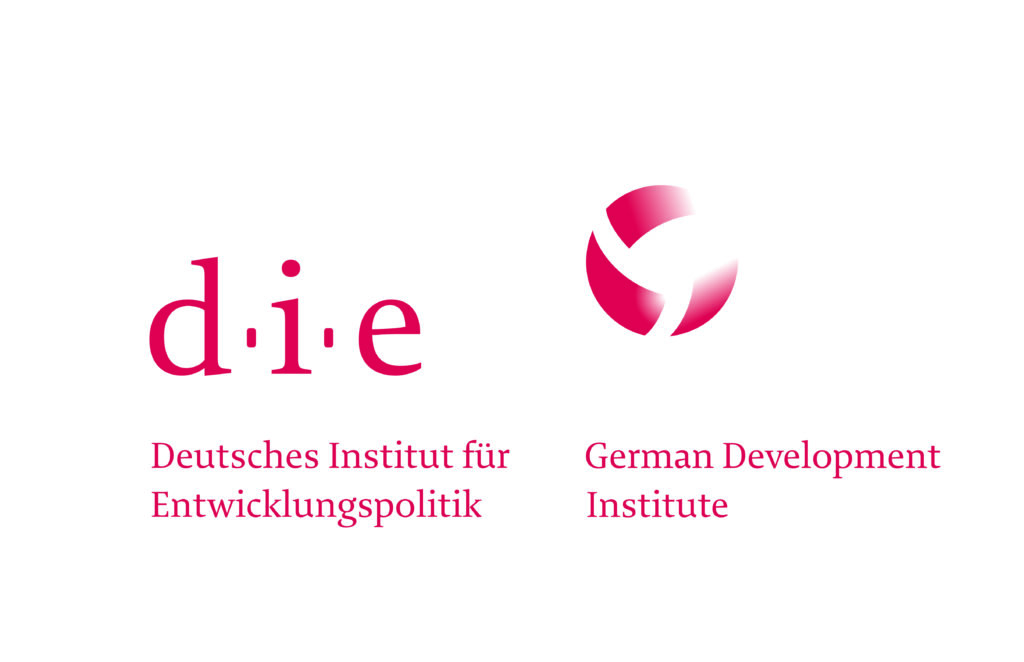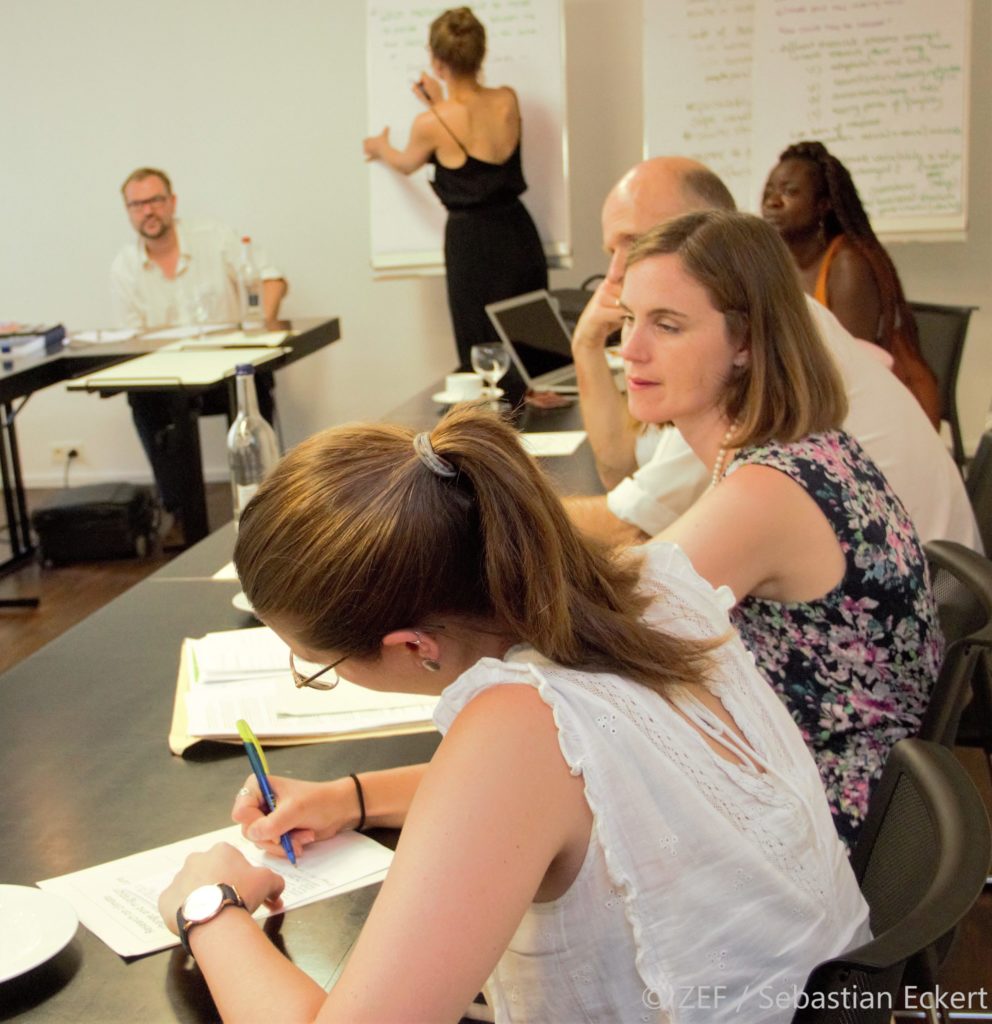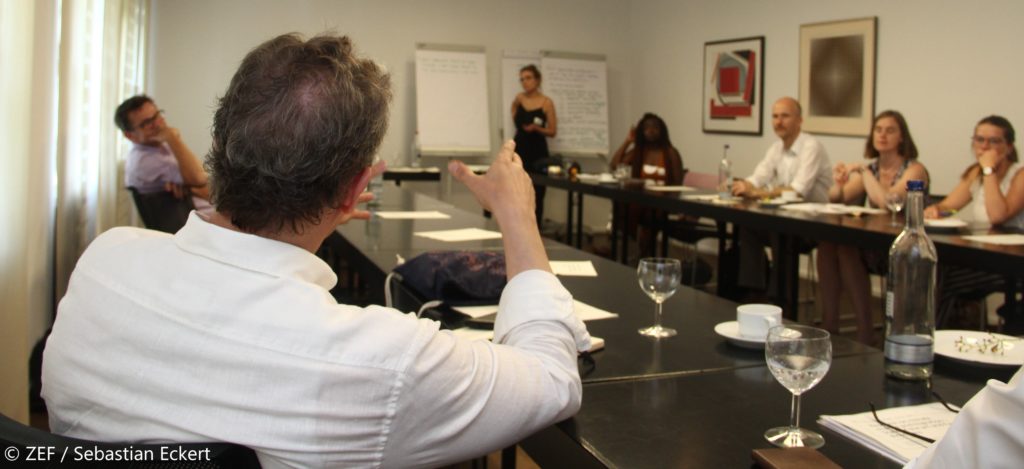Expert Workshop on "Climate Migration"
- Title:
- Research on climate change and migration: State of the art and future directions
- Duration:
- ca. 6 months
- Contact:
- Dr. Benjamin Schraven (DIE) und Dr. Kees van der Geest (UNU-EHS)
- Sponsor:
- Ministry of Culture and Science of the German State of North Rhine-Westphalia (MKW)
- Partner:
- Deutsches Institut für Entwicklungspolitik / German Development Institute (DIE), United Nations University – Institute for Environment and Human Security (UNU-EHS)

Research on climate change and migration: State of the art and future directions (Workshops by UNU-EHS & DIE)


On June 11, 2019, the United Nations University Institute for Environment and Human Security (UNU- EHS) and the German Development Institute / Deutsches Institut für Entwicklungspolitik (DIE) conducted a whole-day workshop on “Research on climate change and migration – State of the art and future directions” at DIE in Bonn. The purpose of this workshop was to discuss the current state of research on climate change and human mobility interlinkages. Furthermore, future research questions, methodologies and opportunities and challenges were discussed. During the workshop, the first steps in the preparation of a discussion paper for setting a possible agenda for future research on climate-migration linkages were made.
This workshop was organized under the umbrella of the Innovation Campus Bonn (ICB), powered by the Bonn Alliance for Sustainability Research. Mobility and Migration is an initial research priority of the ICB.
The findings from the workshop on June 11 were exchanged and discussed with high-ranking political decision-makers from ministries, international NGOs and UN organizations at the ICB Opening on June 25, 2019.
A short summary of the lessons learnt:
When talking about mobility and migration, different structures and systems are addressed on different levels: on the one hand, there are traditional and tribal structures and on the other hand governmental structures. Climate change as well as mobility have implications of different timely nature. The question arises of how to cope and assess these different “levels of time”. The concept of mobility demands that we try to understand society in a way that transcends the concept of the nation-state.
Researchers must help overcoming the negative society notion of climate migration. It has been pointed out that researchers have a (social) responsibility since they are the ones who can make differentiations in their research that prevents from getting a biased or distorted picture of the phenomenon at hand. For this, self-reflection of researchers (e.g. on question of advocacy) is core.
Communication between the scientific research community and the community of practitioners needs to be advanced, promoted and speeded-up.
Both science and policy should work on a better mutual understanding – especially regarding long-term views, which are needed for sustainable solutions, policy relies on science.
There is a need for a pluralism of formats of communication and dialogue between policy and science. Promoting the topic of climate change and migration in political circles to raise more funds and convince policy makers and politicians of the importance of the (research) topic.
Read on the project in detail in the Annual Report 2019: Downloads
Article “Ansätze einer adäquaten Klimamigrationsforschung” (in German)
The explanations on the workshops “Climate Change and Migration” are based on the project reports of Dr. Kees van der Geest (UNU-EHS) and Dr. Benjamin Schraven (DIE).
Sponsor

The project “Research on climate change and migration” is sponsored by the Ministry of Culture and Science of the German State of North Rhine-Westphalia (MKW).